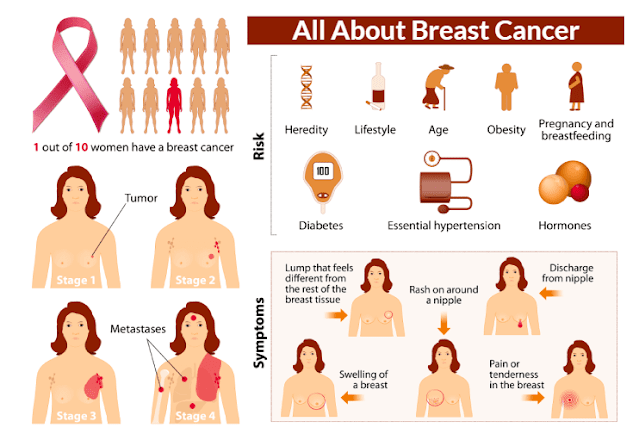How long from stage 1 to stage 4 cancers:

The
progression from stage 1 to stage 4 cancers can vary greatly depending on the
type and location of the cancer, as well as a person's individual health and
response to treatment. It's important to note that not all cancers follow a
linear progression from stage 1 to stage 4, and some cancers may not progress
at all if detected and treated early.
Stage 1
Cancer In stage 1, cancer is considered to be in its earliest and most
treatable stage. At this point, the cancer is relatively small and has not
spread beyond the primary site. In some cases, surgery alone may be enough to
remove all the cancer and prevent further progression.
Stage 2
Cancer In stages 2, the cancer has grown beyond its original site, but has not
yet spread to distant organs. Treatment alternative might comprise operation,
radiation therapy, and chemotherapy. The goal of treatment at this stage is to
remove as much of the cancer as possible and prevent it from spreading further.
Stage 3
Cancer At stage 3, the cancer has spread to nearby lymph nodes or organs, but
has not yet spread to distant parts of the body. Handling options may comprise
a grouping of surgical procedure, radiation therapy, and chemotherapy. The goal
at this stage is to remove as much of the cancer as possible and slow its
progression.
Stage 4
Cancer In stages 4, the cancer has spread to distant parts of the body, making
it more difficult to treat effectively. At this stage, treatment options may
include palliative care to manage symptoms and improve quality of life, as well
as treatment to slow the progression of the cancer. The goal of treatment at
this stage is to prolong life and relieve symptoms as much as possible.
It's
important to keep in mind that cancer progression is not always a linear
process, and some people with stage 4 cancers may experience long periods of
stability or even regression of their cancer. In other cases, the cancer may
progress rapidly, leading to rapid decline in a person's health.
The
length of time it takes for a person to progress from stage 1 to stage 4 cancer
can also vary greatly, and is influenced by many factors, including the type
and location of the cancer, a person's overall health, and their response to
treatment.
In
conclusion, the progression from stage 1 to stage 4 cancers can be a long and
unpredictable journey, and it is important for individuals to work closely with
their healthcare team to receive the best possible care and treatment.






0 Comments